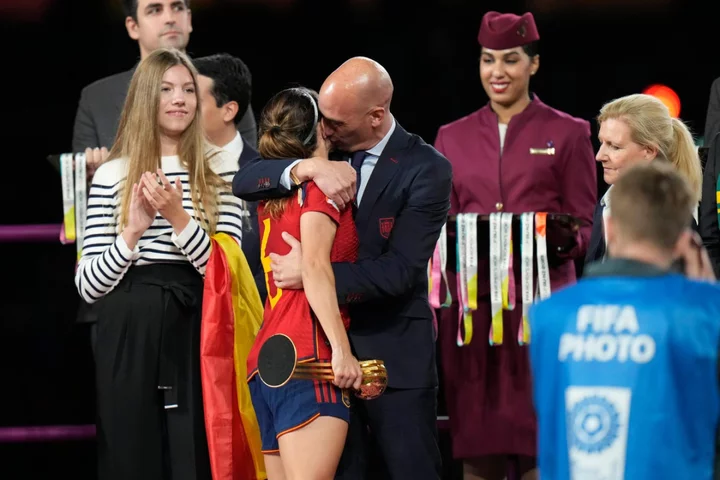
Spanish federation president apologises for kissing one of the players
The Spanish federation president criticised for his antics at Sunday’s World Cup final has apologised for kissing one of the team’s players, saying his behaviour “seems like it has caused a commotion”. Luis Rubiales, who is also a member of UEFA’s ruling executive committee and a vice-president of European football’s governing body, issued a video statement on Monday after he was pictured kissing Jenni Hermoso on the lips during Sunday’s medal ceremony in Sydney, after Spain had beaten England 1-0 in the final. Footage has also emerged of Rubiales kissing goalscorer Olga Carmona, and of him celebrating Spain’s win in the stadium’s VIP area by grabbing his crotch. Rubiales’ behaviour in Australia was described as “unacceptable” by Spain’s acting culture and sports minister Miquel Iceta. The minister called on Rubiales to explain his actions and apologise. Rubiales’ statement focused on the Hermoso kiss and did not reference his behaviour in the VIP box, where he was stood alongside Spain’s Queen Letizia and her teenage daughter Sofia. “There is something I regret, and it was what happened between me and a player, with whom I have a fantastic relationship, just like with the others, where I have certainly made a mistake. I have to admit it,” Rubiales said in his video address. “In that moment of absolute exultation, without any bad intentions or bad faith, well… that happened. I believe it happened in a very spontaneous way, which I repeat had no bad intentions from either side. “From that point on, it wasn’t interpreted that way as we carried on as normal, naturally, and again with no ill will between us. “But outside of that it seems like it has caused a commotion as it seemed to do damage, so I want to apologise for it, I don’t ask for anything else.” Rubiales’ actions come less than a year after a mutiny by 15 Spain players, who withdrew their services reportedly due to discontent with a number of aspects of the national team set-up, including the strictness of coach Jorge Vilda. The federation refused to budge in response to the players’ complaints, with a statement saying those involved would only be able to return to the national team “if they accept their mistake and ask for forgiveness”. Neither Hermoso nor Carmona were among the 15. Hermoso can be heard in a social media post that she “didn’t like” the kiss from Rubiales, but then later released a statement via the federation saying it was a mutual gesture which was “spontaneous”. World players’ union FIFPRO said: “It is deeply lamentable that such a special moment for the players of the Spain national team that was taking place before a global television audience should be stained by the inappropriate conduct of an individual in a role carrying so much responsibility. “Uninitiated and uninvited physical gestures towards players are not appropriate or acceptable in any context. This is especially true when players are put in a position of vulnerability because a physical approach or gesture is initiated by a person who holds power over them.” UEFA has declined to comment. Read More Charity boss speaks out over ‘traumatic’ encounter with royal aide Ukraine war’s heaviest fight rages in east - follow live Warren Gatland breaks new ground by naming Wales co-captains for Rugby World Cup Spain captain Olga Carmona dedicates World Cup triumph to late father Who will win the frantic battle for the final two Super League play-off slots?
2023-08-21 22:23

Denver Broncos: Can Sean Payton revitalize Russell Wilson's career
After the worst season of Russell Wilson's storied NFL career, the Denver Broncos made the necessary head coaching change from Nathaniel Hackett to Sean Payton. Can Payton subsequently get Wilson back on track?Russell Wilson is already 34 years old, so this type of analysis and evaluation b...
2023-08-21 22:21

Cheems Balltze, the internet's cheeseburger-loving dog, has died
Cheems Balltze, a little dog whose smiling face and stocky physique went viral in memes about his passion for cheeseburgers, has died after a short battle with cancer.
2023-08-21 21:51
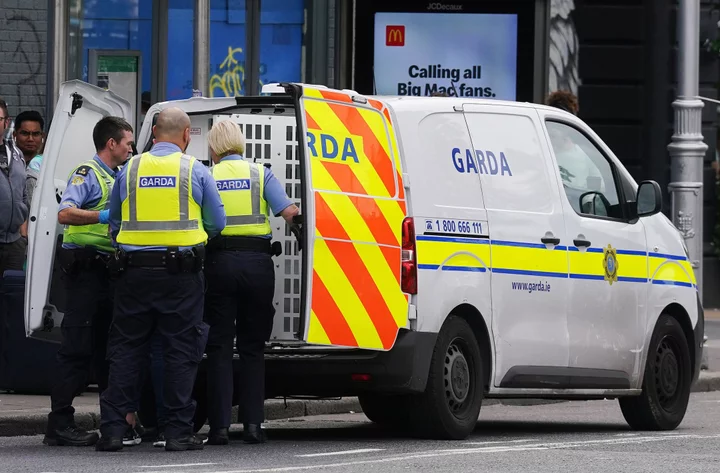
Dublin branded 'unsafe' following latest assault
A man in his 30s was taken to hospital following a stabbing on Grafton Street on Sunday.
2023-08-21 21:26

Bryson Stott's Pencil Bat Was Incredible
Bryson Stott's pencil bat turns heads.
2023-08-21 21:22
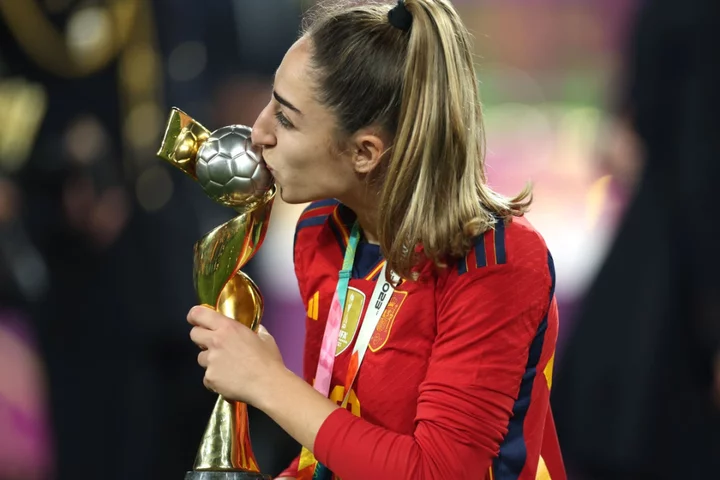
Spain captain Olga Carmona dedicates World Cup triumph to late father
Spain skipper Olga Carmona has dedicated her World Cup triumph to her late father after firing the nation to victory over England. The 23-year-old learned that her father had died after scoring the only goal in Sunday’s 1-0 victory over the Lionesses in Sydney. Real Madrid defender Carmona said in a tweet on Monday: “I have no words to thank you for all your love. “Yesterday was the best and the worst day of my life. “I know that you would like to see me enjoy this historic moment – that is why I will be with my companions – so that from wherever you are, you know that this star is also yours, dad.” Carmona struck 29 minutes into the game at Stadium Australia to hand Spain their first World Cup triumph at the expense of Sarina Wiegman’s England, sparking delirious celebrations on and off the pitch. However, the heart-breaking news of her father’s death was confirmed by Real and the Spanish football federation (RFEF) hours later. Carmona herself then took to social media to pay tribute to him, writing: “And without knowing it, I had my star before the game started. “I know that you have given me the strength to achieve something unique. “I know that you have been watching me tonight and that you are proud of me. Rest in peace, dad.” Read More Charity boss speaks out over ‘traumatic’ encounter with royal aide Ukraine war’s heaviest fight rages in east - follow live
2023-08-21 21:15
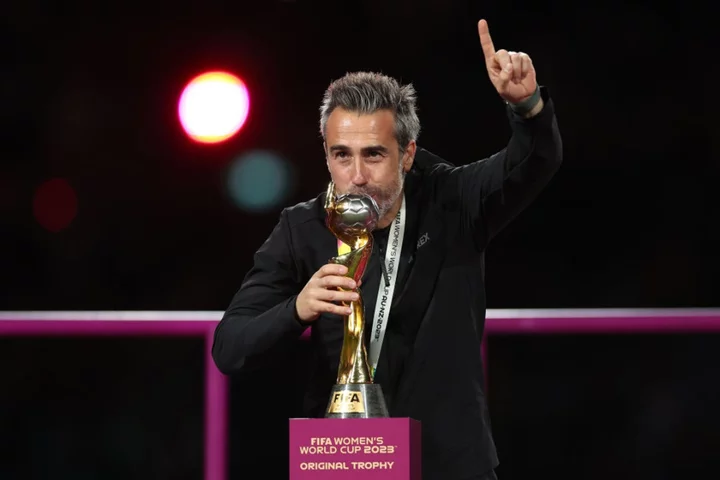
How not to win a World Cup: Spain, Jorge Vilda and the story of a complicated victory
As Olga Carmona ran back to the Spanish celebrations, having just declared that the federation’s support was “marvellous” with a World Cup medal around her neck, she and manager Jorge Vilda high-fived then shared a huge hug. It was an image that went against the more prolific pictures of other players refusing to even look at their coach in the moment of glory. This is not to try and say it was all much rosier in the Spanish camp than had been reported. It is quite the opposite. It points to how multi-layered the many issues in the squad were, going way beyond a mutiny against the manager. The tragic news of Carmona's father passing away before the final illustrates this. But, separate from this tragedy, the issues were real. The Spanish federation’s social media account did put out a post with a picture of the coach and the Women’s World Cup trophy declaring “Vilda in”. The manager, having eventually appeared for his press conference after almost three hours of celebrating, was asked about this – and those who doubted him. In other words, the players at the core of the mutiny, who did not come back. Vilda’s answer was perhaps the most direct reference he’s made to the controversy throughout this World Cup, but was still oblique. “I’m happy for everyone we made happy and that wanted our squad to win. That’s it.” It was just another layer to a situation that has seen a core of players mutiny against the coach and the federation, some come back, with individuals then standing alongside replacements for rebels. It is understood there is a growing Real Madrid-Barcelona issue, to go alongside a more complicated split between those who are in the squad and have little time for Vilda and those who are completely indebted to him. Madrid’s Carmona, whose influence in the squad grew after the mutiny, is very much one of the latter. There is a lot that can be said about all this, but all pale next to the most relevant statement of all. Spain are world champions. Jenni Hermoso had an unintentionally pointed comment on that: “It is easier to say you are world champions than to achieve it.” That has rarely been so true. The most fascinating part of it all is that nobody has ever won any major tournament in a manner even close to this. It is a victory completely without precedent in the history of the sport. There’s an obvious reason for that. Squads faced with such strife usually fall apart. The centre doesn’t hold. It is in many ways how not to win a World Cup. You only have to look at France 2002 and 2010, the Netherlands at Euro 96 and even various men’s Spanish teams. And yet, in the moment of glory, there was another image that symbolised so much. By the penalty area where goalkeeper Cata Coll withstood England’s late pressure, all of the Spanish players had come together in one big group. Almost at the other end of the pitch, by the sideline, the coaching staff celebrated in their own separate huddle. That alone symbolised so much. And yet there was more. In the middle was the entire England squad, Sarina Wiegman and her staff gathering the players together for a consoling message of pride. It was the team with much more unity that had, in many ways, been taken apart. The question isn’t quite how, though. There are obvious explanations. Just as a very specific set of circumstances fostered this crisis, a very specific set of circumstances have also made Spain the best team in the world. All of these players have come through a superb coaching infrastructure, immersed in a highly specific identity, that just isn’t yet visible anywhere else in a developing women’s game. It has given them a supreme advantage that allows them to overcome an unprecedented number of problems. You only have to look at the instinctive way their players get out of the tightest of spaces, to initiate an intricate passing triangle. Any conscious issues are inevitably overcome when it comes that naturally. Carmona’s goal was the perfect example of this. It was executed at such speed and with such flow it was as if they didn’t even need to think about it. They just knew what to do. It was ingrained. It used to be like this for the Spanish men, goalkeeper Coll even making a point of mentioning of how she was inspired by Andres Iniesta and Iker Casillas in 2010. It was just that other countries caught up and began to develop plans that worked very well to counter it. Wiegman gave as good an attempt as anyone, other than Japan. This is another historic anomaly with this Spanish team. No one outside West Germany 1954 has ever won either a men or women’s World Cup having lost a game by more than two goals. Wiegman and her staff had, of course, pored over footage of Spain’s 4-0 defeat to Japan. They thought they had something figured out, but found Vilda’s side had stepped up a level. The Japan match had evidently allowed insight into potential solutions for Spain’s tactical problems. Wiegman almost seemed blown away by how good Spain were, in a very gracious press conference. She naturally admitted they deserved it and then elaborated on the almost impossible balance she tried to strike between pressing Spain but not leaving space in behind. It’s immensely difficult when a player like Aitana Bonmati can just escape in the way she does. That is, again, the other side of this issue. If Spain’s preparation shows how not to win a World Cup, their idea of the game is just how to play football. There are so many moments you watch one of those moves and think every single footballer should have this as a fundamental of their game. There may be fair questions over whether Vilda is any good as a coach at all but he did get one big call right on Sunday: it was clearly correct to go with Salma Paralluelo over Alexia Putellas and became more pronounced given Wiegman’s reluctance to play Lauren James from the start. One stuck. One twisted. It is one of many turns in the story of this campaign, that has never been as neat or as binary as portrayed. It still isn’t how you’d want to prepare for a World Cup, though. That is by far the most remarkable aspect of this fully deserved win. Read More Jorge Vilda: Spain’s World Cup coach at the heart of a civil war Spain star Jenni Hermoso reacts after FA president kisses her on lips Olga Carmona: Spain’s World Cup-winning goalscorer is informed of father’s death minutes after final ends Spanish FA boss who kissed player filmed making obscene gesture The anguish, emotion and the story of the Women’s World Cup in photos Women’s World Cup 2023 LIVE: England head home after final heartbreak
2023-08-21 20:24
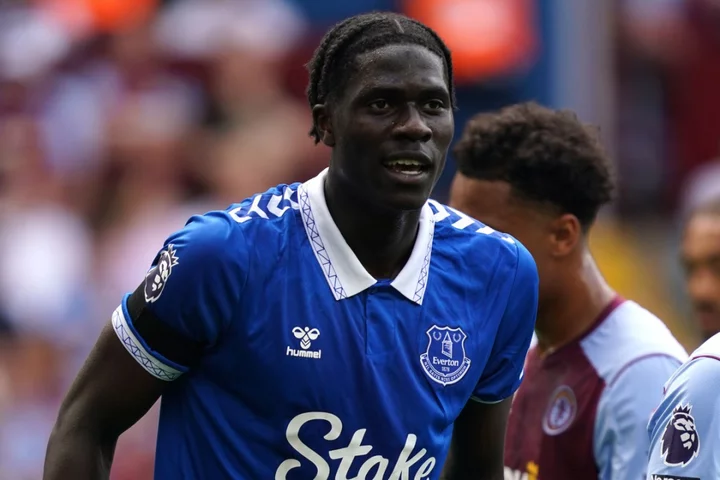
Everton condemn ‘vile’ racist abuse aimed at midfielder Amadou Onana
Everton have condemned “vile” racist abuse aimed at midfielder Amadou Onana on social media and vowed to track down the alleged perpetrator. The Premier League club released a statement on Monday revealing the 22-year-old Senegal-born Belgium international had been targeted and reiterating its zero-tolerance stance on discrimination. An investigation is under way with the Toffees ready to support police in any action they may take. The statement read: “Everton Football Club strongly condemns any form of racist and discriminatory abuse towards our players. “The club is aware of a racist post targeted at Amadou Onana. Such abuse is vile and will not and should not be tolerated. “The club is conducting an investigation to identify the individual responsible and will also be supporting police with any investigation they conduct. “We must all take a zero-tolerance stance by reporting such behaviour to social media platforms and the authorities. Racism has no place online, in our stadia or in our communities.” Onana, a £34million signing from French club Lille last summer, played the full 90 minutes in Sunday’s 4-0 Premier League defeat at Aston Villa. The defensive midfielder has been linked with a move to Manchester United in recent weeks.
2023-08-21 19:58

Bezos’ Blue Origin Methane Emissions Were Spotted by the Space Station
Methane, a powerful greenhouse gas, is thought to be responsible for more than a quarter of global warming
2023-08-21 19:16
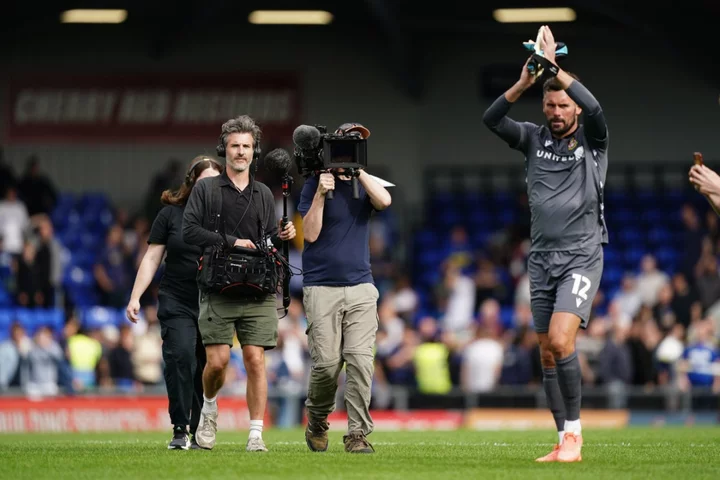
Wrexham goalkeeper Ben Foster retires from football for a second time
Former England international Ben Foster has retired from football for a second time. Ex-Watford and Manchester United goalkeeper Forster walked away from the game last September, but was convinced to end his retirement and sign for Wrexham in March. Foster saved a stoppage-time penalty against title-rivals Notts County the following month before Wrexham sealed promotion to Sky Bet League Two later in April, but he has now called time on his career following a difficult start to the new campaign. He earned cult status during his second spell with the Welsh club for his spot-kick heroics in the 3-2 win over Notts County and agreed to remain part of co-owners Ryan Reynolds and Rob McElhenney’s ambitions plans to haul Wrexham up the divisions when he signed a one-year contract in June. Foster has found life tough in League Two though, conceding five goals in Wrexham’s opening-day loss to MK Dons and he shipped five again in a 5-5 draw with Swindon on Saturday. The 40-year-old has now confirmed his retirement and told the official club website: “The honest truth is that my performances this season haven’t reached the level I demand of myself and I feel that now is the right time to retire. “At the forefront of my mind when making this decision was not only what was best for me but also the club, and making the decision now gives the club every opportunity to assess their options before the window closes. “Wrexham will always have a special place in my heart.” Reynolds said on Twitter: “He built memories I’ll never let go of for as long as I live. I love this guy. Thank you for everything, Ben.” Foster started his career at non-league outfit Racing Club Warwick in 2000 before representing Stoke, Manchester United, Birmingham, West Brom and Watford across more than two decades in the game. He made 390 appearances in the Premier League and played eight times for England, featuring in the 2014 World Cup under Roy Hodgson. Wrexham boss Phil Parkinson added: “Ben has been the model professional while at Wrexham and has done everything we have asked of him. “I am sure I speak for everyone, when thanking him for his contribution that went far beyond that one magnificent penalty save against Notts County to help us gain promotion last season. “Wrexham AFC was a better place for having Ben Foster around the club.” Read More Charity boss speaks out over ‘traumatic’ encounter with royal aide Ukraine war’s heaviest fight rages in east - follow live England will learn fate of Billy Vunipola and Owen Farrell on Tuesday Football rumours: Manchester United consider move for Marco Verratti The thrills, shocks and many brilliant moments of the World Cup in pictures
2023-08-21 18:57
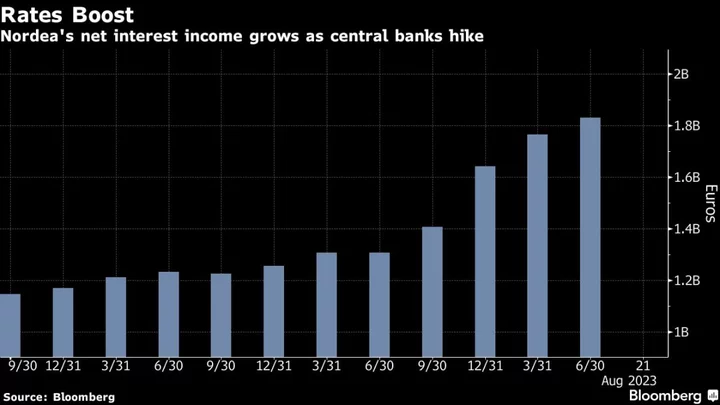
Nordea Boosts Interest on Finnish Retail Clients’ Deposits
Nordea Bank Abp, the largest bank in the Nordic region, is raising deposit rates on accounts held by
2023-08-21 18:51
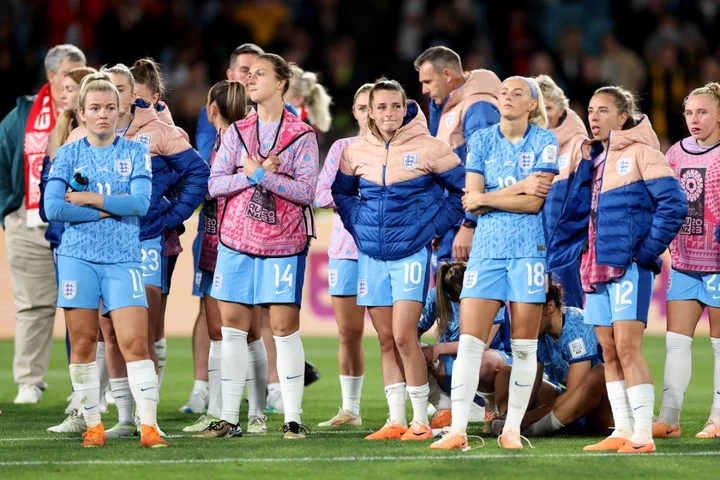
The anguish, emotion and the story of the Women’s World Cup in photos
The Women’s World Cup has concluded. After more than four weeks of dramatic action in Australia, Spain defeated England in the final on Sunday to reach the highest of peaks and, with it, footballing immortality. It’s not over the top to suggest it as such, either; some of the sport’s most iconic and memorable images down the years have come from this very tournament and that very match, both in the women’s and men’s games: Birgit Prinz’s joy in 2007, Lionel Messi lifting the trophy adorned in a bisht in Qatar, Brandi Chastain’s shirt-off shootout celebration, Pele carried off the Azteca pitch in 1970. Those images are as much a part of football history as the games and players themselves – yet the people who bring those moments, those stories to life are, by the very nature of being behind the camera, rarely as prominent. Over in Australia and New Zealand, Getty Images is one of the most prominent global photography organisations providing such reproductions and reflections of what’s going on in the 2023 edition, which makes Lead Photographer Catherine Ivill perhaps better-placed – literally as well as figuratively – than most to detail just how the emotions of the occasion can be captured for those not fortunate enough to have a watching brief. “What I like most about it is telling the story for people who aren’t in the stadium. What we see and hear is only one thing; if you’re not there you need it describing. It’s about the atmosphere, in the game but also until long after the final whistle,” she told The Independent. “A tournament like this has its challenges but these opportunities only come along every few years. The process doesn’t change, just the scale. We send a really strong, experienced team: we have 27 photographers and eight editors on the ground and we provide images across the world, just the same as at the men’s World Cup.” And so to the action, the images, the moments which live on. The 2023 tournament started back on 20 July and it’s fair to say the magic started then, too, as co-hosts New Zealand won their first-ever game at any World Cup, ever. “I was at the fan fest in Wellington during the opening game and the atmopshere was incredible,” Ivill explained. “That one goal changed everything for New Zealand football and people’s respect for it: that one goal has created a legacy for it in the country. It’s such an important moment, you see the subs, the smiling faces – it was a good day.” And yet, football has two sides to every coin. And when there is utter jubilation and euphoria at success on the biggest stage, so too must there be devastation, desperation, despair – as evidenced by Ivill capturing Italy crashing out at the group stage in heartbreaking, last-minute fashion. “Italy gave it away. The utter devastation they were feeling is clear. If [celebratory] stuff is going on at the other end then it’s not always a good photo – you always initially think about the celebration being the good photo but Italy were near me so I focused on how they were feeling, it tells the same story but from a different side.” Even in hard moments can come a softer side in sport though, a moment where rivals know what their beaten opponents are going through. “What I like most about the women’s game is the empathy,” Ivill says. “A lot of these players play together and it’s not always about the celebration at the final whistle. Nobody wants to feel that rubbish at the final whistle and they’re always very willing to go over and help the other team. “It was a hard-fought game and they’re picking her up off the floor – I really like the empathy and the strength that this type of picture gives you.” Sometimes the picture everyone wants to see isn’t necessarily a defining moment, but the players who matter most. One of the world’s finest players and one of the game’s most exciting young talents coming together briefly, for example. “It’s a bit of both luck and planning. Most is luck but of course you have the players in mind. Linda Caicedo has been one of the standouts of the tournament so she’d be someone I would be focusing on – and it just so happens Lucy Bronze comes along at the same time. One’s Real Madrid, one is Barcelona – on paper the rivalry is there too.” No matter how much planning and knowledge goes into proceedings, though, the surprising nature of football is what keeps people coming back – Japan thrashing Spain 4-0 in the group stage being a good example, as Ivill found out. “That game I was on my own and I was waiting to see if Alexia Putellas was starting. She was, so I thought it would be all Spain attack and took up my position behind the goal they’d be heading to...then it’s 3-0 to Japan at half-time and I’m sat at the other end, head in hands! Japan ran riot that game and all I can remember is sitting at the wrong end!” One interesting side note is the concept of taking photos she cannot actually see at the time – with England’s semi-final goal, scored by Lauren Hemp, providing a spectacular and unusual viewing angle. “We have a net cam and before the match we attach it to the goal. I’m firing the camera from a remote in my seat; it doesn’t work all the time as if the net gets hit it can swing or point the wrong way but it’s a great angle and only a few agencies do this, so it’s more of an exclusive image. “We don’t have a view of it in-game – I just have to hope it’s still in the place I left it! We set it up and then it either happens or it doesn’t.” As noted, Ivill remains in place long after the final whistle, long after fans have departed. Or most of them, anyway: the Japanese supporters have become much-admired for lingering later and tidying stadiums behind themselves and others. “They’re so well-known for cleaning up after matches. The players make origami figures and write thank you on the board in the changing rooms; the fans here have continued their tradition of going around after the game. “It doesn’t finish for me when the whistle blows and this shows that. I don’t finish until ages after everyone else has left the stadium.” The go-to, the standard, the expectations of match photos are the action shots: the goals, the saves, the moments people remember. But being in place for such a shot is more than luck and finger-on-the-trigger reflexes. There’s plenty of planning which goes into such an event, Ivill explains, whether from ensuring a team of three are focused on different groups or individuals in a penalty shoot-out, or to making sure potential occurrences are on their radar – such as Marta’s exit from her final World Cup appearance for Brazil. Meanwhile, there are in-the-moment issues and challenges to deal with, particularly around VAR in the modern game. Referees traipsing across the pitch to watch a monitor perhaps 40 yards away from the incident and the group of players can make a photo with context a “difficult” image to capture, with the digital screens a further complication as the LEDs are tricky to focus. Ultimately, though, everyone is at the football for one thing: winning. The celebrations which ensue – whether in the stands, in gatherings outside or right in the midst of the players themselves, are the ones which can linger longest in the memory. Naturally, the emotions which can explode at that point are in large part down to the circumstances of the match: the “unusual” moment of Sweden’s goalline technology-confirmed penalty shootout triumph over USA led to an incredibly up-close and intimate moment, where jubilation in the extreme was clear to see. Of course, Sweden’s adventure ended with a bronze medal as England reached the final with victory over the hosts. But the final chapter of this story saw Spain grasp their moment in the final. A moment which wasn’t the dream scenario for Ivill. one more chapter in this story to come, one more photo in particular to capture. And it’s fair to leave the final word on that to the person who’ll be taking it – and how pertinent that as football continues to catch up, a woman at the top of her profession will deservedly be in place to immortalise those who are celebrating. “I know I’m on the pitch and I’ll be bench-side for the final, so for the trophy lift, the longest-lasting photo, we’ll stand next to each other and have different lenses to capture different images,” she said before Sunday’s final. “My perfect one will be the Lionesses picking it up. That’s the picture for me.” Sometimes, the fairytale ending isn’t fulfilled. Read More Women’s World Cup 2023 LIVE: England head home after final heartbreak Women’s World Cup prize money: How much do the winners get? Lionesses receive surprise reception as they start journey back to England Mary Earps’ Golden Glove award isn’t enough to convince Nike to sell her shirt The two sides of the Women’s World Cup — and the truth about where power still lies England’s impact will last far longer than pain of World Cup final defeat
2023-08-21 18:51
